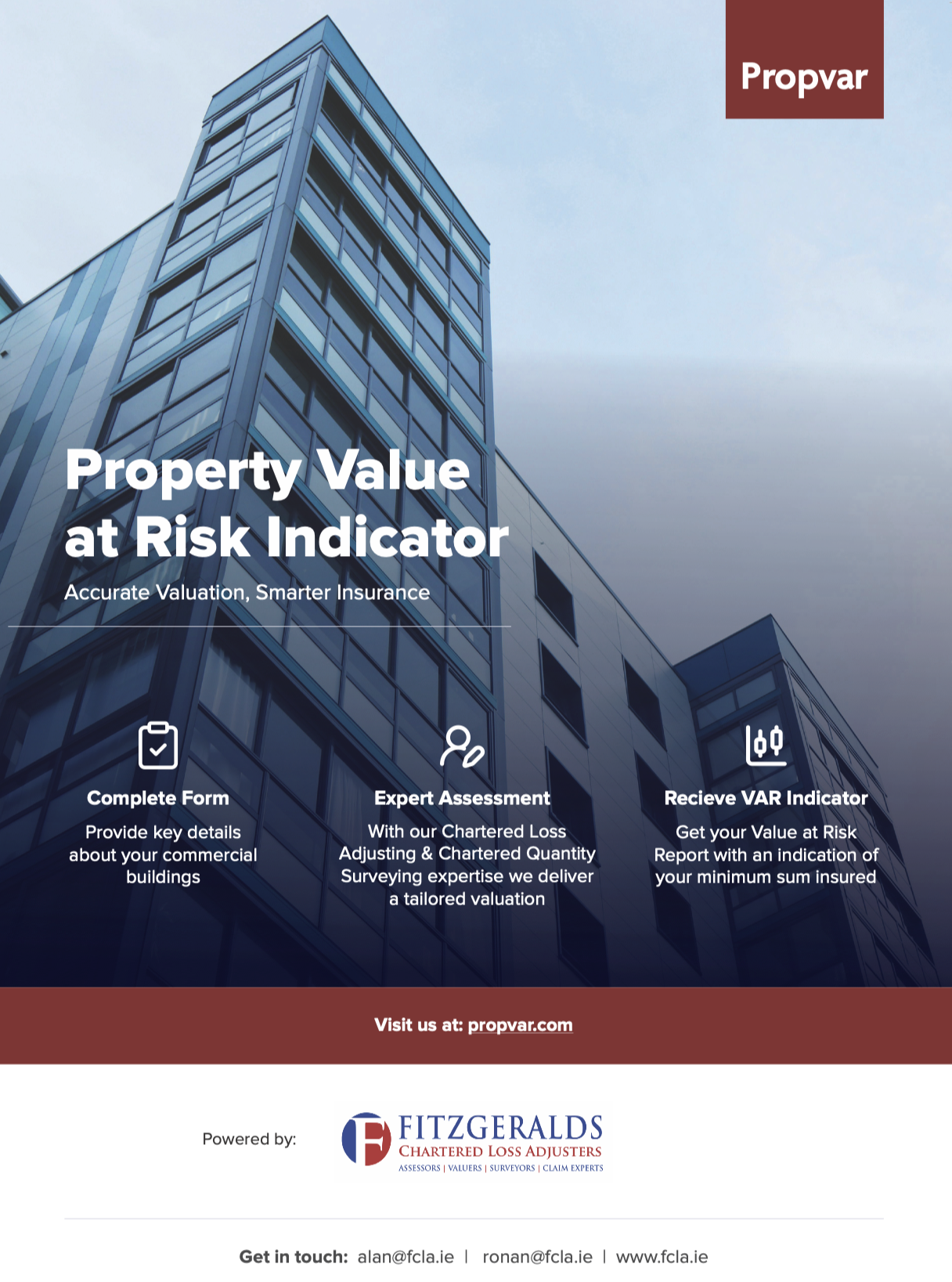Propvar
We are excited to introduce our online “Buildings” valuation service which will provide an indication as to whether your current sum insured is adequate and an indication of what the sum insured should be maintained at going forward

We are excited to introduce our online “Buildings” valuation service which will provide an indication as to whether your current sum insured is adequate and an indication of what the sum insured should be maintained at going forward

To Fitzgeralds Chartered Loss Adjusters
We are property claims specialists dealing in small to significant insurance property losses and third party losses where your property or home has been damaged by a negligent third party.
We are the only Chartered Loss Adjusting firm offering a claims service to Policyholders in the Cork area. The service and expertise we offer is unrivalled but at the same time we are extremely competitive in terms of our fee scale. Our objective always is that our clients are compensated fully for their loss and that you will not be out of pocket
)
We will assess every aspect of your damaged property, analyse your insurance policy, liaise with the Insurance Company Loss Adjuster and we can offer you advice in terms of contractors to use to re-instate / repair the damage.
“We had significant water damage in 2015 and we engaged Alan FitzGerald to present our insurance claim on our behalf. He provided a superb service and we extremely were pleased with the outcome and he helped to get us back up running as quickly as possible. We would have no hesitation in recommending him in a similar situation.”
By continuing to use the site, you agree to the use of cookies. more information
The cookie settings on this website are set to "allow cookies" to give you the best browsing experience possible. If you continue to use this website without changing your cookie settings or you click "Accept" below then you are consenting to this.